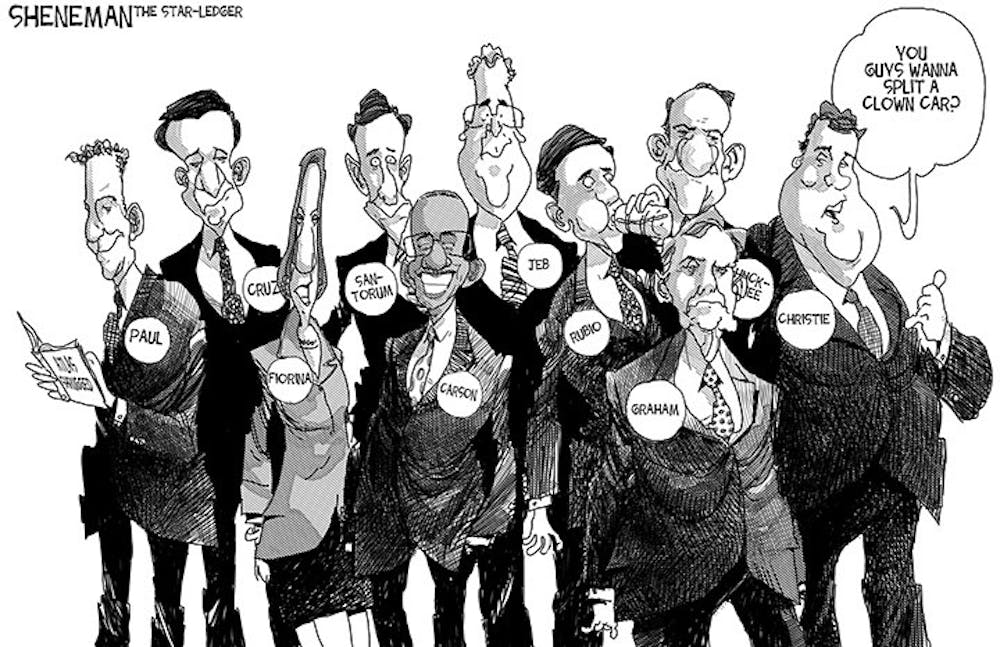An often-used expression to describe a winning party or coalition in politics is that they have a “big tent."
The idea behind the big tent theory is that people with diverse opinions, backgrounds and ideals can agree on their support for an issue or a party. As such, the two major political parties are described as seeking to have a big tent — one that allows voters all across the country to come on in and support their candidates.
But what happens when the tent gets too big?
With Monday’s announcement by our state’s senior U.S. Senator Lindsey Graham that he is running for president, the field of major contenders for the Republican presidential nomination in 2016 swelled to nine. Six more are expected to announce over the course of the summer, and we’re all waiting with bated breath to see if Donald Trump announces. Or at least, the late-night comedians are.
Some have argued that the large field is good for the party, as it will be an example of the big tent phenomenon. The field includes an African-American neurosurgeon Ben Carson, a female former Fortune 500 CEO Carly Fiorina, two Hispanics Ted Cruz and Marco Rubio and a libertarian Rand Paul. It features diversity in generations, backgrounds and ideas. How could that not be good for the party?
But there are several problems with having too many candidates.
One is that the eventual winner might be damaged goods. In 1972, more than a dozen Democrats ran for the nomination leading to a bitter convention and a dark-horse far-left presidential nominee in George McGovern. More recently, in 2012, seven different individuals led national polling for the Republicans. Mitt Romney emerged victorious, but not until going through a nasty primary fight that left him weakened.
Another is today’s media climate allows long-shot candidates to make the party look bad. Whether it was Trump’s birther conspiracy theories, Newt Gingrich’s moon colony or Herman Cain’s Pokemon quotes, the 2012 Republican primary was often more freak show than policy debate. 2016 promises to be no different with an even bigger field with more extreme positions.
A large field also forces the party to make tough choices. Media officials have already announced plans to cap participation for the first 2016 debate, making it tough for some potentially viable candidates to get their message out to voters.
On the other side, the Democrats are faced with a different problem — what if the tent only contains a one-woman show? If that act bombs, there’s no backup.
Whatever the pitfalls of a coronation-style primary, history shows us it’s preferable to a game of presidential whack-a-mole. The more Republicans get in, the more this race is going to hurt their eventual nominee. After all, the bigger the tent, the bigger the circus.

